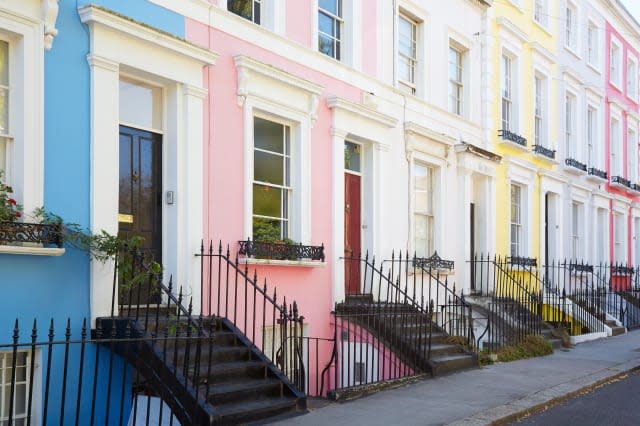It could take you 27 years to save for a house deposit

How would you like to own your own home? It's easy really, just collect together a big enough deposit, bag a mortgage, and snap up a property. It shouldn't take you much longer than... say... 27 years.
See also: Buying a house? Don't forget these costs
See also: April 19 identified as 'mortgage freedom day' for UK home owners
See also: Would you like to live in one of these half-price homes?
A study by MoneySuperMarket has revealed that first-time-buyers in some areas of the UK would need to save for over quarter of a century before they could afford to buy in the area they currently live.
They analysed the average deposit required to buy a house in each local authority - by calculating the amount an average couple could borrow on a mortgage given their salary: the deposit is the sum they would need to stump up to make up the difference.
The top ten biggest deposits needed
1. Kensington & Chelsea where buyers need a deposit of £688,772.37 - 52% of the property price
2. Westminster £554,995.66 - 54% of the property price
3. Camden £490,737.55 - 57% of the property price
4. Hammersmith & Fulham £346,866.43 - 46% of the property price
5. Haringey £285,195.87 - 51% of the property price
6. Hackney £264,503.22 - 48% of the property price
7. Islington £254,317.74 - 39% of the property price
8. Lambeth £242,800.34 - 47% of the property price
9. Barnet £235,725.28 - 44% of the property price
10. Brent £235,408.42 - 48% of the property price
Kensington and Chelsea is the most unaffordable place to live in the UK. House prices in the area are on average £1.3million and an average salaried couple would need £688,772 deposit. With the combined salary of a couple living in the borough averaging £147,918, people can expect to wait approximately 23 years before they've saved enough to buy a home.
Westminster and Camden are the next least affordable, requiring deposits of £554,996 and £490,738 respectively. In Camden, that equates to saving for 27 years, the longest of any area in the UK.
Time to move?
Buyers in these areas would either need to earn enormous salaries, save until their 50s to buy a property, rely on rich relatives to come up with a deposit for them, buy a shoebox rather than an average property or - far more likely - move to a cheaper area.
However, anyone planning to move out of London for an affordable home may need to move further than they expect. A handful of places in the commuter belt also made the top 20, including South Bucks, Chiltern and Elmbridge, with all requiring deposits of over £200,000.
Outside London
The picture doesn't get much better when you move out of the Capital. In total, the analysis also revealed that in 75 local authorities, an average salaried couple would need to find more than a 20% deposit to buy an average priced house. Meanwhile, in 39 local authorities a couple would need to save more than a 30% deposit to buy an average priced house. In total, there are 34 local authorities in which it will take prospective homeowners 10 years to afford the minimum deposit needed to buy in their borough.
Kevin Mountford, banking expert at MoneySuperMarket, said: "As house prices continue to rise, the dream of owning a home becomes harder and harder to reach for so many people. For those who want to take their first steps onto the ladder, reaching the minimum deposit levels required causes serious financial strain and, as our analysis highlights, many might be priced out of their desired area. Similarly, for those who already own their own home but are looking to take that next step up the ladder, the stretch could be a bigger burden than anticipated."
What can you do?
Mountford says: "It is important to strike a balance when relocating and prospective buyers shouldn't stretch themselves too far. For those who want to maximise their chances of securing their dream home in their dream area, paying off debts is the best way to start, as existing borrowing will be taken into account by a lender when it comes to applying for, or extending, a mortgage. Reducing the amount you spend each month could also help when it comes to boosting the amount a lender thinks you can afford to borrow."
"When comparing mortgages, it's vital to work out the total cost over the term of the deal, taking both rates and fees into account. Don't automatically be put off by high fees, as it may be worth paying them to benefit from lower interest rates. Costs can vary greatly between providers, so taking the time to shop around and work out the total amount you have to repay over the term of the offer is essential."




